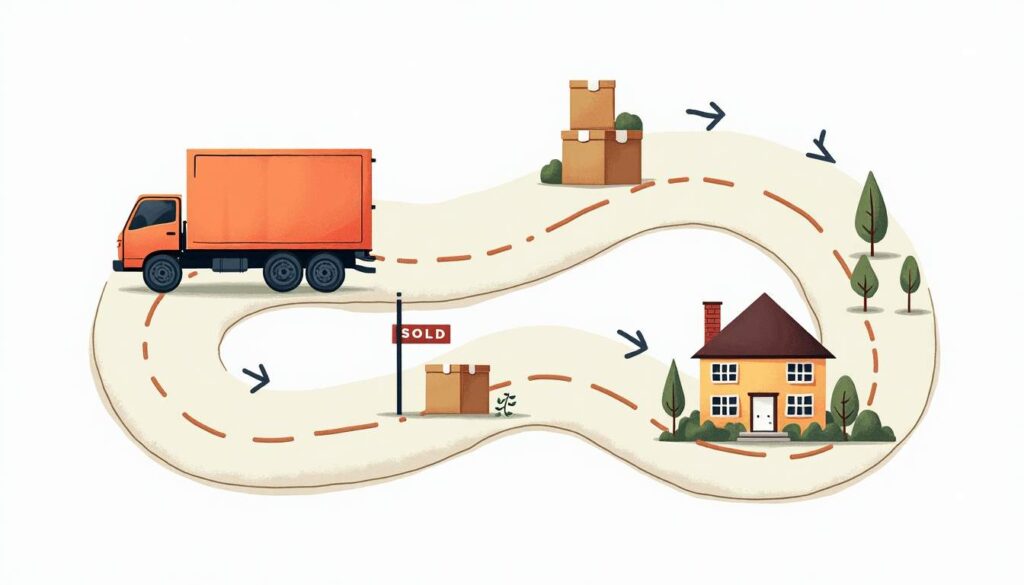Trust is the cornerstone of any successful moving company-client relationship. From the very first inquiry to the last box being unloaded, every interaction shapes how customers perceive reliability, professionalism, and care. In an industry often criticized for poor communication and unmet expectations, moving companies that prioritize trust-building stand out and thrive. Leveraging modern technologies and focusing on transparent, consistent communication can transform a stressful experience into a seamless journey for clients.
According to the Gitnux Report 2025, nearly half of movers (47%) now use AI-powered customer service chatbots to enhance client experience, demonstrating a shift towards more responsive and accessible communication channels. This article explores how moving companies can build and maintain trust throughout the entire moving process.
First Impressions Matter: The Initial Contact
The first call or inquiry sets the tone for the entire moving experience. Customers often feel like just another number, with 61% expressing that most companies treat them impersonally, according to WeMove.ai Analysis 2025. This perception can be a significant barrier to trust even before any service is rendered.
To counter this, moving companies should focus on personalized, empathetic communication from the outset. Training customer service teams to listen actively and address specific concerns can make clients feel valued. Incorporating AI chatbots is also beneficial, as they provide instant responses to common questions, reducing wait times and frustration. However, it’s crucial that these bots are designed to escalate complex queries to human agents seamlessly, ensuring no client feels neglected.
Transparent pricing during the initial contact is another critical factor. Studies show that 70% of customers are more likely to return to a logistics provider offering clear and upfront pricing (WiFi Talents Report 2025). Hidden fees or vague estimates can erode trust quickly, so providing detailed quotes and explaining potential variables helps set realistic expectations.
Moreover, the importance of follow-up communication cannot be overstated. After the initial contact, a simple follow-up call or email can reinforce the personal touch that clients crave. This gesture not only shows that the company values their potential business but also provides an opportunity to clarify any lingering questions or concerns. A study from the Customer Experience Institute found that 80% of consumers appreciate follow-ups, as they feel more connected and engaged with the service provider.
Additionally, showcasing testimonials or case studies during the initial interaction can build credibility and alleviate concerns. When potential clients see positive feedback from previous customers, it instills a sense of confidence in the company’s ability to deliver on its promises. Sharing stories of successful moves, especially those that highlight the company’s problem-solving capabilities, can resonate deeply with clients who may be feeling anxious about the logistics of their own move.
Communication and Consistency Throughout the Move
Consistent communication is a major trust builder during the moving process. The Gitnux Report 2025 highlights that 74% of freight customers say regular updates increase their trust in providers. This principle applies equally to residential moving clients who want to feel informed every step of the way.
Providing real-time updates about schedules, delays, and progress can alleviate anxiety and demonstrate professionalism. Digital tracking tools have become invaluable in this regard, with 78% of logistics companies reporting increased customer satisfaction thanks to these technologies (WiFi Talents Report 2025). Whether it’s a mobile app or SMS notifications, keeping clients in the loop fosters transparency and control.
Moreover, punctuality is paramount. When movers arrive late, 65% of customers lose trust in the organization (WeMove.ai Analysis 2025). Companies should implement robust scheduling systems and contingency plans to minimize delays. If unforeseen issues arise, proactive communication explaining the situation can preserve trust rather than damage it.
In addition to updates and punctuality, the tone of communication plays a crucial role in shaping customer perceptions. A friendly, empathetic approach can significantly enhance the moving experience, making clients feel valued and understood. Training staff to communicate effectively and compassionately can lead to stronger relationships and repeat business. For instance, a simple follow-up call after the move can reinforce a sense of care and commitment, showing clients that their satisfaction is a priority.
Furthermore, leveraging social media platforms can also enhance communication efforts. Many moving companies are now using these channels not just for marketing but as a way to engage with clients in real-time. By addressing questions and concerns promptly on platforms like Twitter or Facebook, companies can build a community around their brand, fostering loyalty and encouraging word-of-mouth referrals. This modern approach to communication not only showcases a company’s responsiveness but also creates a more personal connection with clients, making the moving experience feel less transactional and more relational.
Delivering a Positive Final Experience
The final stages of a move—unloading and settling in—are critical moments that leave lasting impressions. Companies that handle belongings with care and respect reinforce their reliability. Encouraging movers to engage politely and attentively with clients contributes to a positive emotional experience. This interaction can transform a potentially stressful situation into a memorable one, fostering a sense of trust and satisfaction that clients will remember long after the move is complete. When movers take the time to listen to clients’ needs and preferences, it not only enhances the immediate experience but also builds a rapport that can lead to long-term loyalty.
Customer reviews play a significant role in shaping future trust. With 85% of consumers trusting online reviews as much as personal recommendations (Analytics Insight), actively soliciting feedback and showcasing positive testimonials can attract new clients and reassure hesitant prospects. Moreover, responding to reviews—both positive and negative—demonstrates a company’s commitment to customer satisfaction and willingness to improve. This proactive approach can turn a critical review into an opportunity for growth, showing potential clients that the company values their input and is dedicated to enhancing the moving experience.
Post-move follow-up is another opportunity to strengthen relationships. Checking in to ensure satisfaction and address any concerns signals commitment beyond the transaction. This approach aligns with the finding that 80% of consumers consider the overall experience as important as the products or services themselves (WiFi Talents Report 2025). Additionally, offering resources such as tips for unpacking or settling into a new neighborhood can add value to the client experience. By providing these thoughtful touches, moving companies can position themselves as not just service providers, but as partners in a significant life transition, thereby enhancing customer loyalty and encouraging referrals.
Leveraging Technology to Enhance Trust
Technology is reshaping customer expectations in the moving industry. AI chatbots, digital tracking, and transparent pricing tools are no longer optional but essential for companies aiming to build trust.
AI-powered chatbots provide immediate responses, helping to reduce the frustration of waiting on hold and ensuring clients feel heard from the first interaction. As noted earlier, 47% of movers have adopted these tools to improve client experience (Gitnux Report 2025).
Digital tracking tools give clients visibility into their move’s progress, which 65% of consumers find critical (WiFi Talents Report 2025). This transparency reduces uncertainty and builds confidence in the company’s professionalism.
Additionally, transparent pricing platforms help eliminate surprises and foster trust from the start. When customers understand exactly what they are paying for, they are more likely to engage in repeat business and recommend the company to others.
Conclusion: Trust as a Competitive Advantage
Building trust in the moving industry is no longer just about delivering goods from point A to point B. It requires a holistic approach that encompasses personalized customer service, consistent and transparent communication, and the smart use of technology. Companies that invest in these areas not only improve customer satisfaction but also differentiate themselves in a competitive market.

With 60% of logistics companies recognizing customer experience as a key competitive differentiator (WiFi Talents Report 2025), the message is clear: trust is the foundation of long-term success. From the first call to the final box, every step offers an opportunity to earn and reinforce that trust, turning moving into a positive, memorable experience for clients.




